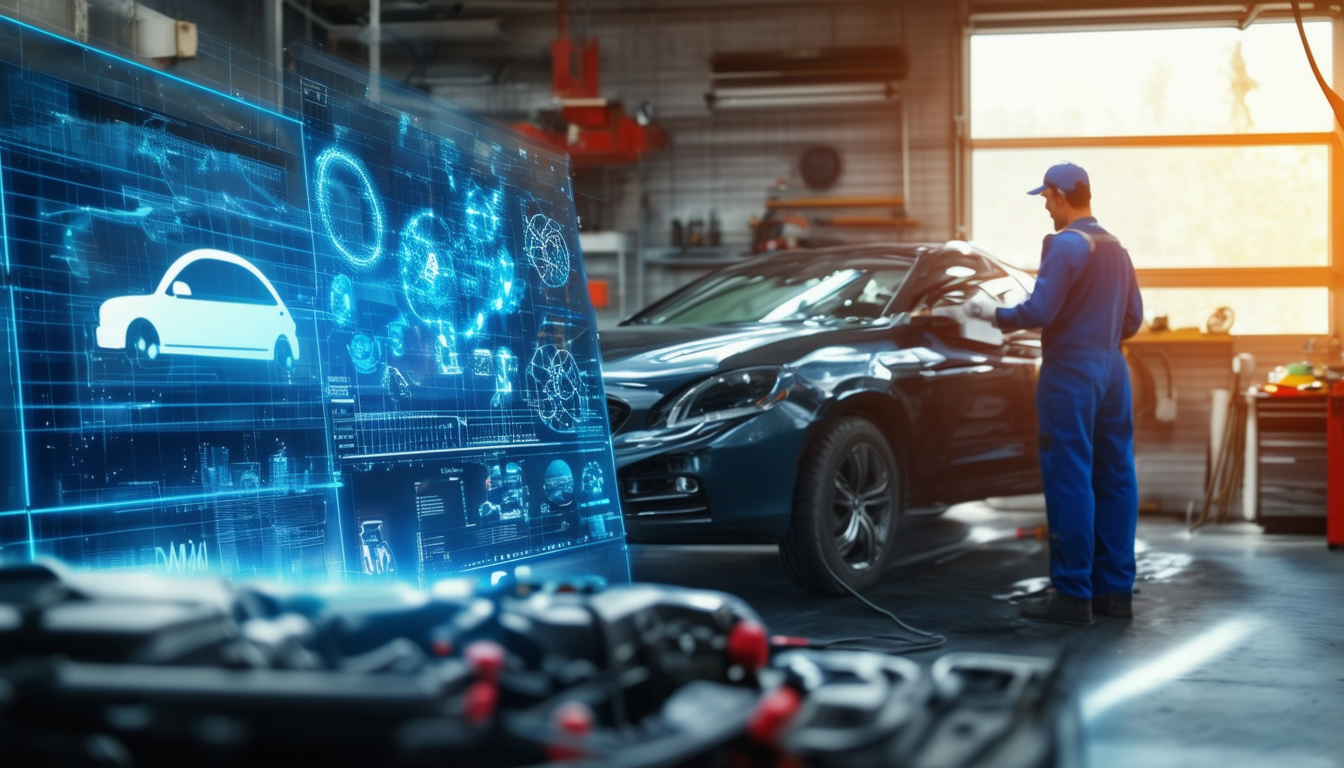Reducing fuel expenditure: the role of preventive maintenance

Reducing fuel expenditure is an increasing concern today, whether for economic or environmental reasons. One of the most effective strategies to achieve this is through preventive maintenance of vehicles. This type of maintenance not only optimizes engine performance but also ensures that every component functions efficiently, contributing to a significant decrease in fuel consumption. Implementing regular maintenance practices can be the key to improving energy efficiency and, at the same time, reducing the carbon footprint.
Preventive maintenance is crucial for maximizing vehicle efficiency and, therefore, reducing fuel expenditure. Regularly monitoring the vehicle’s conditions not only ensures optimal performance but also minimizes the carbon footprint and helps save money in the long run. With the implementation of proper maintenance strategies, issues that affect fuel consumption can be avoided.
The Importance of Maintenance for Vehicle Efficiency
A vehicle that is in optimal condition operates more efficiently. This translates to lower fuel consumption and a reduction in pollutant emissions. Regular maintenance practices, such as timely oil changes, checking air filters, and calibrating tires, are simple steps that can make a big difference in a car’s operation.
Efficient Driving: A Key Practice in Maintenance
In addition to the physical maintenance of the vehicle, adopting an efficient driving style is essential. Avoiding sudden accelerations and abrupt braking can reduce fuel consumption by up to 15%. Maintaining a constant speed and planning routes to avoid congestion can significantly contribute to better fuel performance.
Benefits of Preventive Maintenance
Implementing a preventive maintenance program presents multiple benefits. A well-maintained vehicle not only performs efficiently in terms of consumption but also extends its lifespan. This is especially important in the current context, where savings and sustainability are essential for many drivers.
Reducing the Carbon Footprint
Vehicles in optimal condition emit less contaminating gases. Therefore, regularly maintaining a vehicle is not only a way to save money but also a responsibility towards the environment. Fuel efficiency is directly related to sustainability in mobility, highlighting the importance of taking care of every aspect of the vehicle.
Effective Strategies to Keep Fuel Consumption Under Control
Implementing effective strategies can radically change a vehicle’s behavior in terms of fuel consumption. Regularly changing air and fuel filters, as well as checking the injection system, are practices that contribute to more efficient engine performance. Additionally, ensuring that tire pressure is at appropriate levels can improve consumption efficiency.
Driver Education: A Fundamental Part of Maintenance
Training drivers in efficient driving techniques is an essential complement to preventive maintenance. Driving consciously and responsibly can help conserve fuel. Learn more about how to improve your consumption in this article.
Conclusion
In summary, the role of preventive maintenance is undeniable when it comes to reducing fuel expenditure. From efficient driving to regular inspections, every aspect counts. Keeping the vehicle in optimal condition not only benefits the owner economically but also benefits the environment.
Discover how sustainable mobility is key to reducing fuel expenditure at this link.
Preventive maintenance stands as an essential tool for optimizing fuel expenditure. By conducting regular inspections and proper care of vehicles, their operational efficiency is ensured. This implies not only oil and filter changes but also verifying the condition of tires and the injection system, among other technical aspects.
A well-maintained vehicle can show a significant improvement in fuel performance. It is estimated that certain driving habits, such as avoiding sudden accelerations and maintaining a constant speed, can reduce fuel consumption by up to 15%. However, it is important to remember that the root of efficiency lies in rigorous and consistent maintenance.
Furthermore, efficient vehicles are responsible for lower pollutant emissions, contributing to a cleaner and more sustainable environment. Proper maintenance not only improves car performance but also helps reduce the carbon footprint associated with its use. This translates into both economic and environmental benefits, promoting a culture of responsible driving.
On the other hand, performing regular maintenance also means preventing costly breakdowns. Each scheduled intervention avoids the possibility of repairing major damage that may arise from neglect. This proactive approach ensures not only savings on fuel but also the preservation of the vehicle’s value, avoiding unforeseen expenses.
Finally, the implementation of preventive maintenance programs is not just a practical measure but a long-term investment that benefits both drivers and the planet. Adopting these habits is essential to optimize fuel usage and promote sustainability in transportation.






